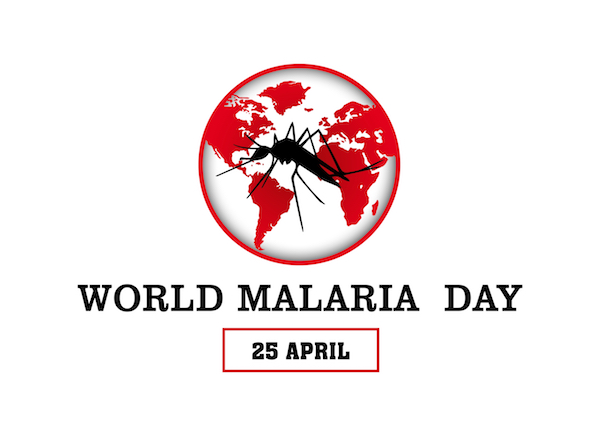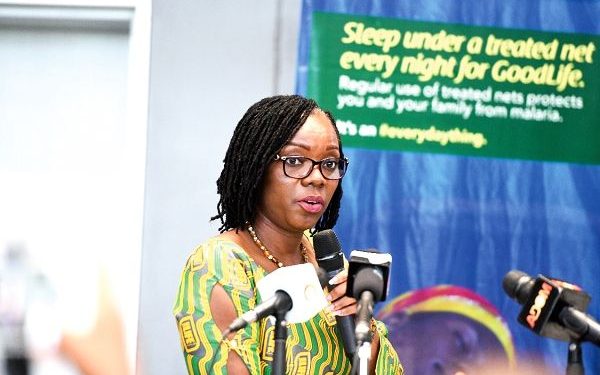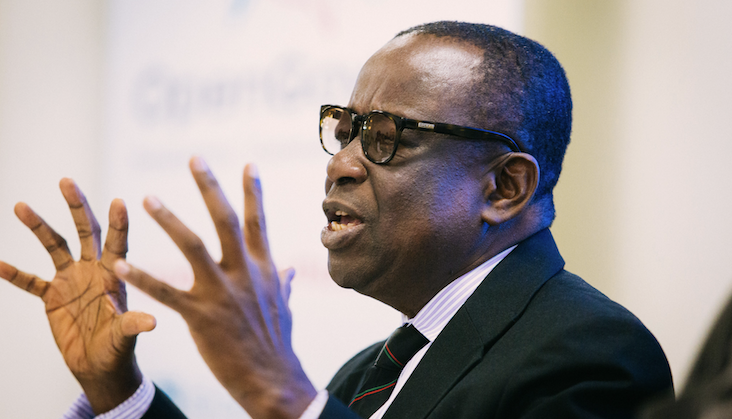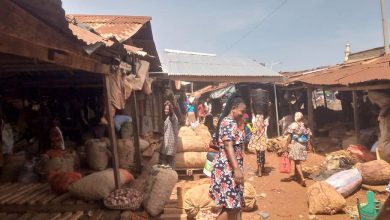
The Programme Manager of the National Malaria Control Programme, Dr Keziah Malm, says Ghana is targeting sub-national elimination of the disease by working with some districts that are already close to pre-elimination.
By this, out of 100 reported suspected malaria cases less than five must test positive for malaria.
Dr Malm indicated that lessons drawn from such districts will be scaled up nationwide.
“The fight against malaria is moving towards elimination but, to get there we need to get to pre-elimination, so we took the districts which are getting close and working on to make sure that by 2025 they will be in the pre-elimination phase”.
Dr Malm said this when she addressed the media in Accra.
World Malaria Day is an occasion to highlight the need for continued investment and sustained political commitment to malaria prevention and control. It was instituted by the Member States of the World Health Organization during the World Health Assembly of 2007.
This year’s event is to celebrate the achievement of countries that are approaching and achieving malaria elimination.
Dr Keziah Malm said surveillance in selected districts which have been designated for malaria pre-elimination will be increased.
READ ALSO:https://beachfmonline.com/world-malaria-day/
“We will make sure they confirm all suspected malaria cases, improving the diagnostic capacity of these districts. We will establish a threshold, generally, we don’t have that because we have very high malaria, but in these districts where malaria will go down when there is an increase in malaria we will declare outbreaks in those districts and then measure will have to be taken immediately to curb it.”

Dr Malm said the National Malaria Control Programme will map out strategies for domestic resource mobilization for malaria elimination, adding that Parliament is being engaged to help put malaria on the national health agenda for increased awareness and needed resource mobilization. She said diverse approaches will be employed for needed results.
“I think very soon we will be having some sugar bait tools which will be catching mosquitoes in someplace around your homes. The key thing is whatever is found to be effective, let’s scale them up to those who reed them and utilize different life saving and workable tools.
Malaria Control is multi-prone. I wish we could have one tool that can do everything, but, we don’t make our work difficult but, we’re working on it”.
Commemoration of the 2022 World Malaria Day, is being climaxed at Hohoe in the Volta Region. It is one of the regions with the highest malaria prevalence and is earmarked for the malaria pre-elimination phase.
The WHO, as part of the 2022 Day observation, has called for investments and innovations to bring new vector control, approaches, diagnostics, anti-malarial medicines and other tools to speed the pace of progress against malaria.
It has also called on countries to expand the use of the RTS among children living in areas with moderate and high malaria transmission, adding that if implemented broadly, the vaccine could save tens of thousands of lives each year.
The WHO also admonished countries to ensure resilient and equitable health systems as progress against malaria depended on strong health systems that were adequately funded and equipped to deliver quality healthcare to all. It also emphasized the need for a carefully tailored prevention, diagnostic and treatment approach informed by local data and disease patterns.
They were also to bear in mind that strong surveillance was the cornerstone of malaria programme planning as it helped countries to identify gaps in coverage of control tools and take action based on data received.
Malaria is a life-threatening disease caused by parasites transmitted to people through the bites of infected female Anopheles mosquitoes. Five parasite species cause malaria in humans, and two of them – Plasmodium falciparum and Plasmodium vivax pose the greatest threat.
Children five years and below and pregnant women are more prone to malaria. Symptoms of malaria include fever, chills, general feeling of discomfort, headache, nausea and vomiting, diarrhoea, abdominal pain, muscle or joint pain, fatigue, rapid breathing, sweat, rapid heart rate and cough.
Malaria could result in cerebral malaria, which may cause seizures and coma, breathing problems, organ failure, anaemia, jaundice (yellow colouring of the skin and eyes), low blood sugar, and mental confusion.
The disease could, however, be prevented by sleeping in treated mosquito nets and living in clean areas among others.
GBConline





